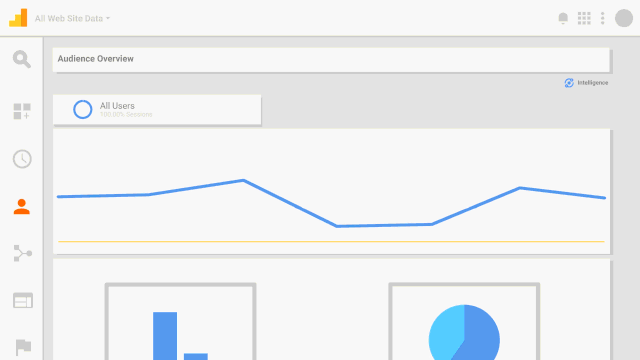
Google has been working on voice recognition for its products. The company has implemented the feature in Search and a few other products, before making it available on Google Analytics.
The goal is to make things easier for users to be able to get information they need, without having to understand the many features Google Analytics has. With natural language, users can get the data they want without having to dig in, in both desktop and Google Analytics' mobile apps.
They’re part of a broader initiative within Google called Analytics Intelligence, which aims to give customers a better understanding of their Google Analytics data
This way, data analysts will spend less time in understanding what they need to understand to get what they want, and have more time to focus on strategies.
To do this, Google uses artificial Intelligence built inside Analytics that enables users to ask questions like how they do on Google Now. The results for their query will surface data the system thinks will be useful for the person logged in.
Google has been developing natural language recognition for years. But for all this time, Google's AI has been solely used for applications, mainly like Search. The feature arriving to Analytics is a welcome move by Google as it eases users in putting what's important to them without them needing to understand what's what.

Google's Analytics Intelligence can be accessed from a circle icon with dots in the upper right corner of the apps, from both desktop and mobile apps.
On desktop, users will be able to see automated insights and type questions into a query box after clicking the Intelligence icon from every page in Analytics.
On the mobile app, users will also be able to use their voice to surface data in Google Analytics after tapping on the Analytics Intelligence icon.
The update isn't necessarily big, and isn't an incremental change. But to help users understand what they actually need, and delivering that data instantaneously is indeed an added advantage.
Initially, the system only supports the types of questions that Google Analytics knows about the users' business. These can include segments, asking about sessions and so forth. Google Analytics will display the results with a chart, saving users some precious time and clicks.
What's more, users can also ask follow-up question based on the previous questions. There are also suggested questions that will be shown once users click on the query box as prompted.
More complex questions aren't supported yet. What this means, users couldn't ask Analytics questions like: "Why is my organic page views decrease this week?". But Google said that it is working on that as the system learns.
If the system doesn't understand the users' question, the system will notify the users, and will store that question to build its capabilities.
According to Babak Pahvlan, the person who heads measurement and analytics products for Google, they saw users start by asking fairly basic questions and then progressively asking more and more sophisticated questions. The system will continue to learn as users query it more and more.